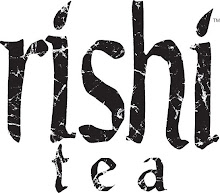 Joshua is the guest speaker for Breville's Food Thinkers blog. This is his second post for them, this month's feature is Gyokuro Yame.
Joshua is the guest speaker for Breville's Food Thinkers blog. This is his second post for them, this month's feature is Gyokuro Yame. It’s so cold and depressing. When is winter going to end? I spend a great deal of my time in the sub-tropical heat of Southeast Asia. When I come back to my frozen homeland (Mid-Western, USA) this time of year, I often find myself complaining like this. When I feel that down and blasé mood creeping up on me, I call upon the uplifting powers of GyoKuro.
This green tea called GyoKuro (Precious Jade Dew) is amazing! Not only does it have a super kick like espresso, its energy lasts longer and does not lead to a caffeine crash.
In Japan, Gyokuro is regarded as a natural anti-depressant due to its high content of the amino acid, L-theanine, which only exists in tealeaves. Amongst all the types of tea, Matcha and GyoKuro have the most L-theanine. It is this cold and dreary time of year when I consume the most Matcha and GyoKuro.
Now, I’ve been traveling around Asia for the past 14 years and I am a strong adherent to the Taoist philosophy of Yin & Yangand the concept of seasonal food. Many like minds would claim that green tea is too Yin or cooling for this time of year and that one should be drinking Pu-erh, black tea or heavier fermented and roasted oolong teas that are more warm and potent in property (Yang). I totally agree with this theory but I argue that Gyokuro is an unusual green tea that is suited to this cold weather season and one should not avoid Gyokuro during the winter, rather embrace it. Here’s why:
#1 Scientists claim that a lack of sun and very cold weather is naturally depressing. The L-theanine in Gyokuro is a natural anti-depressant and a neural-stimulator. Its consumption leads to the production of increased Alpha Brain waves. Of the 5 brain waves, alpha brain waves trigger endorphins (energetic happy vibes) and dopamine (chill out vibes). Coupled with the caffeine in Gyokuro, the L-theanine stimulated alpha brainwaves lead to a unique, long lived uplifted mental state that one can describe as a calm state of alert and focus kind of like how a Kung Fu master must feel or what Rishi-ites and the ancient Tang Dynasty poets refer to as “Tea Drunk”.
#2 Gyokuro is not all that cold (Yin) as a green tea. Gyokuro tea bushes are shaded during cultivation. This shading blocks the production of catechin, which is the major cooling property in green tea and it is this shading that enhances the yield of L-theanine in Gyokuro. The shading produces a unique green tea that is low in cooling catechin but rich in caffeine and uplifting L-theanine.
 Joshua with young Goko varietal bushes destined for future Gyokuro.
Joshua with young Goko varietal bushes destined for future Gyokuro.As a professional tea taster and seasonal food lover, I drink green tea during its fresh harvest season. Most green teas have a short shelf life and after December of each year they start to show their age quite dramatically. Contrary to the rule of green tea, Gyokuro is the one green tea that must, by tradition, be matured and aged a bit before consumption. Real Gyokuro is harvested in June, aged until late October and released in November. Gyokuro is at its best 6-9 months after harvest. I would say February is a great time to enjoy Gyokuro for its flavor and its complimentary seasonal benefit.
 Fair Trade My Home is a grass-roots campaign of fair trade companies, individuals and organizations who are inviting friends and fans to join the fair trade movement and make their home a “Fair Trade Home.” The goal is to create as many self-declared Fair Trade Homes as possible by having people submit a photo or video showing which fair trade goods they regularly purchase and use in their home. Submit your photos and video to www.fairtrademyhome.com.
Fair Trade My Home is a grass-roots campaign of fair trade companies, individuals and organizations who are inviting friends and fans to join the fair trade movement and make their home a “Fair Trade Home.” The goal is to create as many self-declared Fair Trade Homes as possible by having people submit a photo or video showing which fair trade goods they regularly purchase and use in their home. Submit your photos and video to www.fairtrademyhome.com.



